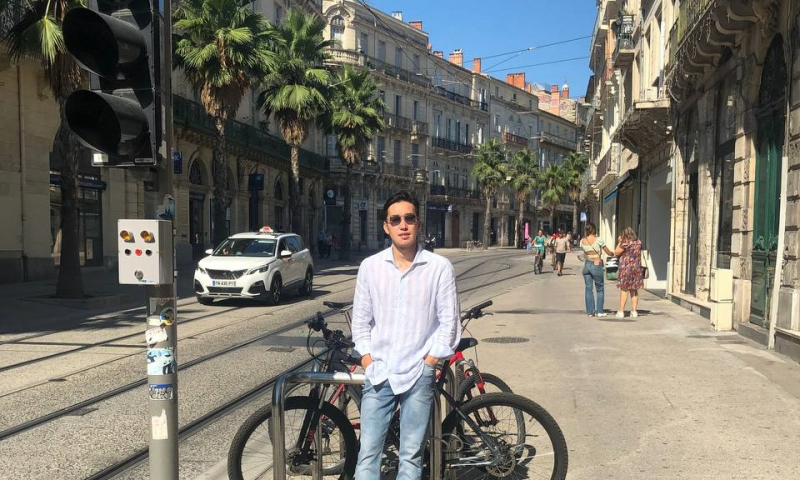ITMO Graduate
Preparing For Study Abroad Experience
This blog is my personal experience of studying and living in the city of Montpellier, France, at IAE Montpellier University. Also, this blog contains information about my travels in France and some recommendations for future students of our university. This article builds on and complements the previous work of my colleague Tatiana [in Russian].

General advice for those planning on studying abroad
Before study abroad
The main thing at this stage is to find and write down the deadlines for submitting your documents, depending on the semester you are going (spring/fall) to the partner university. It is necessary so that you do not panic and write to the international office asking "I did not get an email from the partner university — is that normal?". You should check your email (Outlook) at least once a week. Remember that emails from the international office and the partner university usually only go to @niuitmo, which is the main email at ITMO University.
How to choose a university and find courses?
The criteria for choosing a university are different for everyone, so I cannot give you a "ready to go'' recipe here, but I can share one that I have followed myself. Of course, the first thing you should do is look at the list of universities offered by the international department and find those that have your department as a priority. For example, if you wanted to go to Spain and study FTMI, you would not find a partner university offering programmes for this destination in 2021, which is what happened to me.
Then you can move on to the next criterion, the availability of an educational programme related to yours that you are studying at ITMO. You can find this information on the official website of the university, under "Departments" and "Faculties".
In my experience, 90% of your future journey is decided by the head of your study programme. Because, he/she has to agree on your subjects and give his/her approval for the trip. So, it is very important to consult with the programme supervisor during the selection of your programme and subjects. This person can also professionally advise you on which country (or even university) to choose in terms of your professional education.
Please remember that the first list of subjects you make at this stage IS NOT the final version. This means that the subjects will change during the preparation for the trip, during your studies and even, in some cases, after your return. So, no fanaticism here, pick courses to match your subjects in the next semester, consult your supervisor and take a couple of courses you are interested in that are not related to your professional life (if you have the time and energy to do so). These courses, along with the credits you accumulate, will go to your diploma as additional courses you have studied. Do not miss out on the unique opportunity to study subjects that are only taught at specific universities.

Look for courses from previous years, from previous exchange semesters, on the official website of the department or faculty, and ask by writing to the university (if you have already been nominated). In any case, you will only receive a final list of courses for exchange students from your partner university after the selection of our competition. The main task here is to "make up" the courses and warn the supervisor that the list will change.
When I chose a country for myself, I looked at whether I had friends in that country. This helps a lot in adapting and makes your trip unique. Friends can save you a lot of time and effort with some local procedures and issues. They can show you places hidden from view and introduce you to the culture and people. In difficult moments they always come to the rescue and keep you company when traveling.
After you have passed the first round of selections
During your studies, it is very good to get assignments from our university lecturers, with a focus on the place where you are. In this way, your work will be unique and you will find it more interesting to stay in a given country. For example, I'm an economics major and I've done a couple of papers related to the French economy.
A letter arrives with instructions from your partner university. You should read it and make a note of the deadlines and what documents you need to submit. Very importantly, some documents take time to prepare, DO NOT make a deadline. There are some documents that you cannot do yourself, you need the services of different organizations and that takes extra time.
Do not over-complicate the first version of the Learning Agreement for yourself, the Programme Manager and the International Department. This document will change several times. The main thing here is to roughly pick up the subjects for a minimum of 21 credits. During COVID you need to find out and write about the plans of the university about the study format. In general, you should not be afraid to write and ask the partner university about incomprehensible points in filling in the documents, but you should take into account the timing of answers and formulate the letter correctly.
